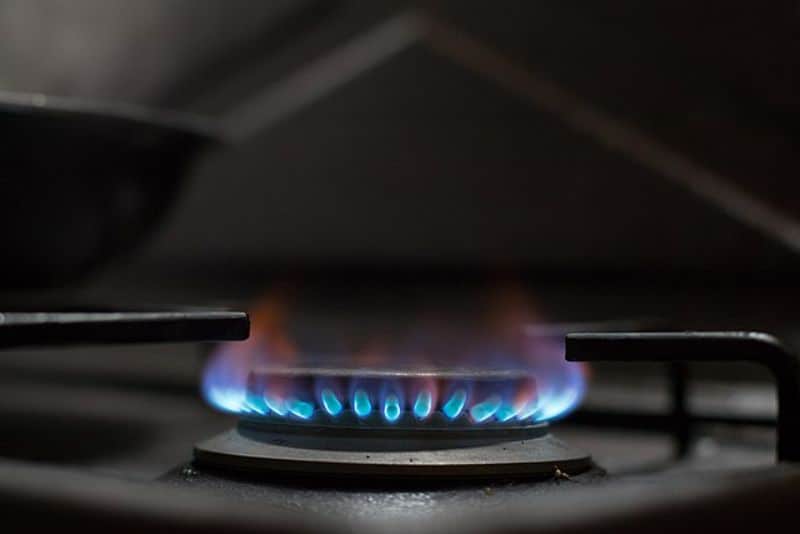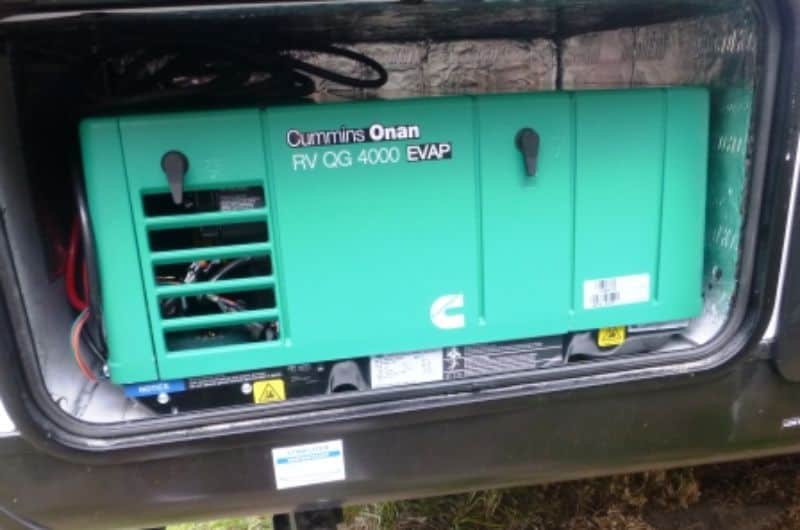It’s invisible. It’s odorless. It’s tasteless. And it can kill you: the “quiet killer.”
Sounds like a teaser trailer to a B-grade horror film, but we’re talking about carbon monoxide (CO). Today’s topic: How NOT to get carbon monoxide poisoning in your RV.
More than 20,000 people are rushed to the ER every year because of carbon monoxide poisoning. It’s the number one cause of poisoning in the United States. Symptoms include dizziness, fainting, nausea, confusion and hallucinations. It’s not a pleasant way to go.
Tips for Avoiding Carbon Monoxide Poisoning In Your RV
If you don’t have to read this whole article … make time. Because every RVer should be aware of the dangers of carbon monoxide poisoning.
But if you can’t peruse the entire post, check out these tips for avoiding CO poisoning inside your RV.
- Never operate a fuel-burning appliance inside your RV!
- Don’t use your gas cooktop for space heating.
- Use your range hood when operating a gas cooktop.
- Inspect your RV’s appliances, generator, and engine exhaust systems regularly.
- Don’t cover any appliance sidewall or roof vents.
- Crack open a window and a roof fan for ventilation.
- Don’t park next to other motorhomes or trucks with running engines or generators!
- Position generators at least 20 feet away from your RV and close any adjacent windows.
What Is Carbon Monoxide Poisoning?
Here’s a brief description of CO poisoning, courtesy of the Mayo Clinic:
“Carbon monoxide poisoning occurs when carbon monoxide builds up in your bloodstream. When too much carbon monoxide is in the air, your body replaces the oxygen in your red blood cells with carbon monoxide. This can lead to serious tissue damage, or even death.”
-Mayo Clinic
Symptoms of carbon monoxide poisoning have often been described as “like a severe flu, but without the fever.” They include:
- Headaches
- Dizziness
- Nausea
- Confusion
- Spasms
- Sleepiness
If you’re thinking, “I could never be poisoned! I would feel sick and go outside!” then you’re forgetting that carbon monoxide poisoning often occurs while people are sleeping. In cases of severe poisoning, victims may pass out before escaping the RV.
“Three men have died and two are in critical condition after being found unresponsive in their travel trailer at a campground by US-12 and Brooklyn Highway in Woodstock Township, Michigan,” says a People report from July 18, 20221.
“This tragic incident is being investigated as a suspected carbon monoxide exposure from a generator located very near the travel trailer,” investigators said.
Which RV Appliances Produce Carbon Monoxide?
Carbon monoxide is produced by incomplete combustion of fuels, such as propane, gasoline and diesel. It is produced by several RV appliances, such as:
- Propane furnaces
- Absorption refrigerators
- Gas cooktop burners
- Water heaters
- Portable propane heaters
- Gas generators
This is why all propane-burning appliances must be vented to the outdoors. It’s why your refrigerator must be installed within an airtight, vented compartment that’s sealed to the outside.
It’s also why your RV comes equipped with a carbon monoxide detector. But they aren’t fail-safe! Never assume that an RV CO detector will make up for your poor judgment.

How to Prevent Carbon Monoxide Poisoning in Your RV
There are two basic ways carbon monoxide can build up inside your RV: It either leaks inside, or it is trapped inside.
Causes of carbon monoxide inside an RV
- Exhaust leaks from either a vehicle engine
- Poor ventilation while using a portable gas-powered heater
- Generator fumes exhausting into the RV
- Using gas-powered burners for interior heating (a big bo-no!)
- Furnace, water heater or absorption refrigerator vents blocked and fumes escaping into the interior.
- Malfunctioning appliances, such as a furnace with a split combustion chamber.
- A stiff wind blowing exhaust fumes into the interior through an open window or another entry point.
In the following sections, I’ll hit on two out of the five that I consider some of the biggest concerns:
- Operating propane-burning appliances indoors, such as a space heater or gas cooktop.
- Allowing generator or engine fumes to exhaust into the RV interior.
Does an RV Stove or Propane Heater Produce Carbon Monoxide?
Yes, RV cooktops and propane space heaters generate carbon monoxide.
In fact, the only appliance inside your RV that produces carbon monoxide and isn’t directly vented to the outdoors is your gas cooktop. Have you ever heard the advice, “Never use your cooktop for space heating”? This is why: You will generate carbon monoxide and possibly poison yourself.

(There’s an old myth that blue flames don’t produce carbon monoxide. This is untrue. They generally produce less carbon monoxide than yellow flames, but they’re still dangerous.)
If you choose to operate a propane-burning space heater indoors, you are also potentially risking your safety. There are two basic sorts of propane space heaters:
- Space heaters with an open flame will both A) consume oxygen and B) generate carbon monoxide. These heaters are not intended for enclosed spaces and should never be used indoors. Plus, they are an extreme fire hazard.
- Catalytic propane heaters do not have an open flame. If certified to ANSI Z21.103-2017, they produce only trace amounts of carbon monoxide, which rarely reaches hazardous concentrations. However, they do consume oxygen, which raises the risk of hypoxia, another serious health condition. This is why many catalytic space heaters come with a built-in low oxygen shut-off sensor.
It may sound backwards, but if you are using any fuel-burning appliance indoors (even a catalytic heater), you should ventilate the space. You should crack open a window and roof fan in two locations to encourage a cross breeze. Yes, you will lose some heat through convection, but your safety is worth it. Never operate a fuel-burning appliance inside a sealed space, even if it is rated for interior use!
Can a Generator Cause Carbon Monoxide Poisoning in an RV?
Yes, it absolutely can. And it has!
“A 75-year-old Somerset County, Pa., man died as a result of apparent carbon monoxide poisoning while camping at the Allegany County Fairgrounds and his wife was taken to the hospital Thursday morning for treatment,” according to The Cumberland Times, August 2013.
“[The couple] went to sleep in their 1989 Coachman recreational vehicle Wednesday night with a gas generator several feet away from the rear of the vehicle, police said. The generator’s exhaust was pointed toward the vehicle and fumes entered, causing the couple to have exposure to carbon monoxide.”
Unfortunately, there are many similar stories: People who kicked on their generators, turned on the air conditioning, and went to sleep. And never woke up.

Hundreds of people have died from carbon monoxide poisoning in their RV because of exhaust fumes from generators and engines. To prevent carbon monoxide poisoning in your RV, follow these tips:
- Use an inverter generator, which can limit the amount of fuel burned based on the electrical load.
- Orient the generator exhaust away from the RV! And position the generator so prevailing winds don’t blow the fumes towards your motorhome or camper trailer.
- Keep your generator at least 20 feet away from any window, door or vent.
- Close any windows within 20 feet of a running generator.
- Seal any holes in the floor or walls where gasses can leak in.
- Don’t sleep with a running generator.
- Hey, don’t even operate a generator! Invest in a bigger battery bank and solar panels, and do away with those nasty fossil-burning fossils themselves.
Leave a Reply